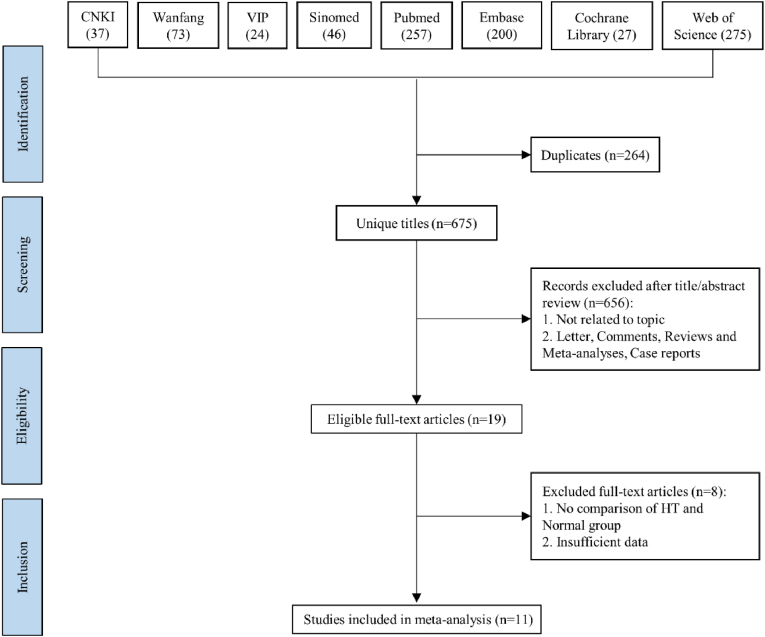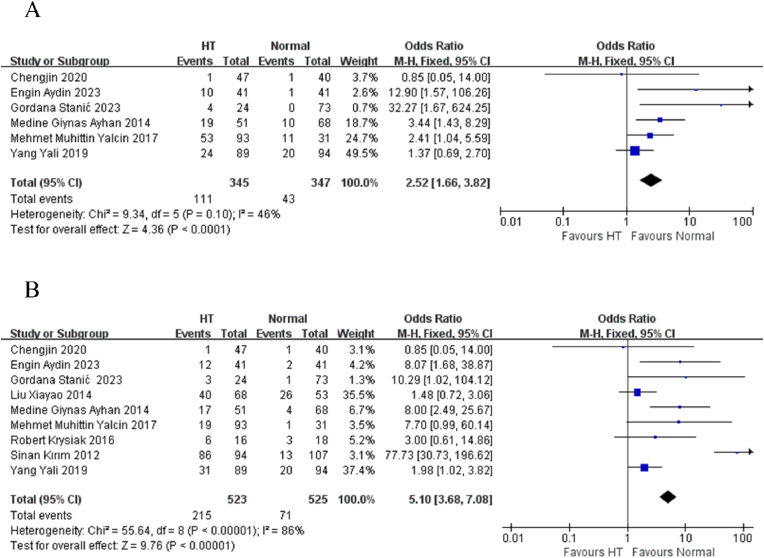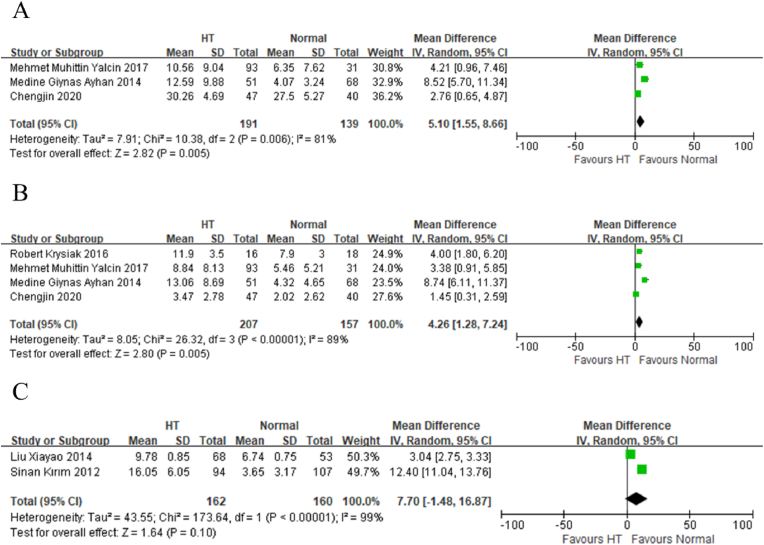Association between depression and anxiety disorders with euthyroid Hashimoto's thyroiditis: A systematic review and meta-analysis
IF 2.5
Q3 ENDOCRINOLOGY & METABOLISM
引用次数: 0
Abstract
Background
Hashimoto's thyroiditis (HT) affects up to 10 % of the population and is a common cause of hypothyroidism, which can lead to depression and anxiety. However, it remains unclear whether HT directly causes these conditions or if they arise due to HT-induced hypothyroidism. The present review aims to offer meta-analytic insights into the relationship between depression and anxiety in patients with euthyroid HT.
Methods
A comprehensive search was conducted in PubMed, Embase, Web of Science, Cochrane Library, CNKI, Wanfang Data, SinoMed, and VIP from their inception through May 2024. Case-control or cross-sectional studies examining the association between euthyroid HT and either depression, anxiety disorders, or both were included.
Results
For depression, 1365 patients (694 HT vs. 671 controls) from 11 articles were analyzed; for anxiety, 1009 patients (516 HT vs. 493 controls) from 8 articles were included. HT patients had 2.5 times higher odds of anxiety disorders (OR = 2.52, 95 % CI: 1.66–3.82). The Beck Depression Inventory showed a WMD of 4.26 (95 % CI: 1.28–7.24) and the Beck Anxiety Inventory a WMD of 5.10 (95 % CI: 1.55–8.66).
Limitation
The findings should be interpreted cautiously due to heterogeneity, potential publication bias, and variability in assessment tools, which may limit generalizability.
Conclusions
Euthyroid HT patients exhibit a higher prevalence of anxiety disorders compared to healthy control groups, and more susceptible to anxiety and depression symptoms based on the Beck Inventory. Thyroid antibodies themselves are also associated with depression and anxiety disorder.



抑郁症和焦虑症与甲状腺功能良好的桥本甲状腺炎之间的关系:一项系统综述和荟萃分析。
桥本甲状腺炎(桥本甲状腺炎)影响高达10%的人口,是甲状腺功能减退的常见原因,可导致抑郁和焦虑。然而,目前尚不清楚是HT直接导致这些疾病,还是HT引起的甲状腺功能减退。本综述旨在对甲状腺激素治疗患者抑郁和焦虑之间的关系进行meta分析。方法:综合检索PubMed、Embase、Web of Science、Cochrane Library、CNKI、万方数据、中国医学信息网(sinmed)、维普网(VIP)自成立至2024年5月的数据库。研究甲状腺激素与抑郁症、焦虑症或两者之间关系的病例对照或横断面研究也包括在内。结果:在抑郁症方面,来自11篇文章的1365例患者(694例HT对671例对照)被分析;对于焦虑症,纳入了来自8篇文章的1009例患者(516例HT对493例对照)。HT患者出现焦虑障碍的几率是前者的2.5倍(OR = 2.52, 95% CI: 1.66-3.82)。贝克抑郁量表的WMD为4.26 (95% CI: 1.28-7.24),贝克焦虑量表的WMD为5.10 (95% CI: 1.55-8.66)。局限性:由于异质性、潜在的发表偏倚和评估工具的可变性,研究结果应谨慎解释,这可能限制推广。结论:与健康对照组相比,甲状腺功能亢进患者表现出更高的焦虑障碍患病率,并且根据贝克量表更容易出现焦虑和抑郁症状。甲状腺抗体本身也与抑郁症和焦虑症有关。
本文章由计算机程序翻译,如有差异,请以英文原文为准。
求助全文
约1分钟内获得全文
求助全文
来源期刊

Comprehensive psychoneuroendocrinology
Psychiatry and Mental Health
CiteScore
3.10
自引率
0.00%
发文量
0
审稿时长
62 days
 求助内容:
求助内容: 应助结果提醒方式:
应助结果提醒方式:


